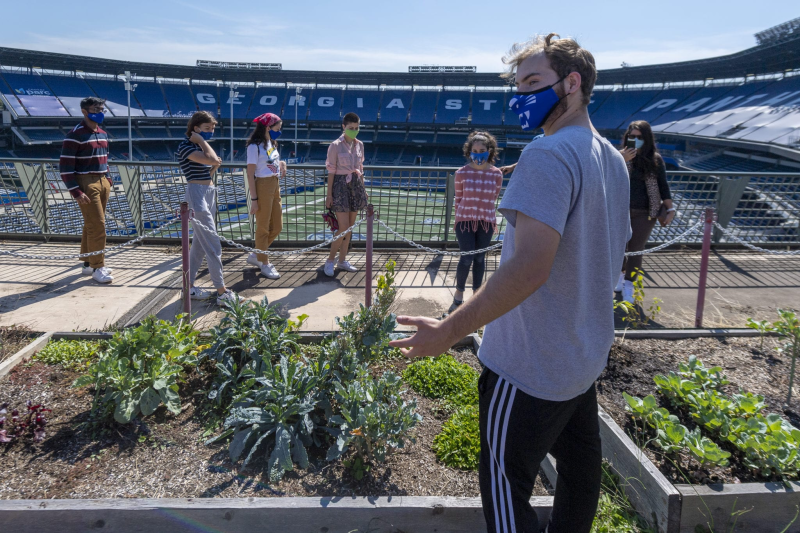
The Importance of Recycling to Waste Management
Recycling plays a crucial role in waste management, offering numerous environmental, economic, and social benefits. Here are 12 paragraphs highlighting the importance of recycling:
Conservation of Resources: Recycling helps conserve valuable natural resources by reducing the need for raw materials. By reusing materials such as paper, plastic, glass, and metal, recycling reduces the extraction of virgin resources and lessens the strain on forests, water sources, and mining operations.
Energy Savings: Recycling often requires less energy compared to manufacturing products from raw materials. For example, recycling aluminum cans requires 95% less energy than producing new ones. By conserving energy, recycling helps reduce greenhouse gas emissions and combat climate change.
Waste Reduction: Recycling diverts waste from landfills, reducing the need for additional landfill space. This is especially important as landfills contribute to pollution and release greenhouse gases as waste decomposes. By recycling, we can significantly reduce the volume of waste that ends up in landfills.
Pollution Prevention: Recycling helps minimize pollution associated with the extraction, manufacturing, and disposal of materials. By diverting waste from incinerators and landfills, recycling reduces air and water pollution, preserving the quality of ecosystems and human health.
Economic Opportunities: Recycling supports the creation of green jobs and stimulates economic growth. Recycling industries provide employment opportunities in areas such as collection, sorting, processing, and manufacturing. By investing in recycling infrastructure, communities can boost their local economies.
Cost Savings: Recycling can lead to cost savings in waste management. Landfilling waste is expensive, as it involves transportation, disposal fees, and environmental impact mitigation. Recycling reduces these costs and can be more financially viable in the long run.
Circular Economy: Recycling is a fundamental component of the circular economy model. By recycling materials, we can transform waste into new products, extending their lifecycle and reducing the need for constant extraction of finite resources.
Plastic Pollution Reduction: Recycling plastics is crucial in combating plastic pollution, which poses a severe threat to marine ecosystems and wildlife. By recycling plastic waste, we can prevent it from entering rivers and oceans, protecting marine life and preserving delicate habitats.
Community Engagement: Recycling programs engage communities and foster a sense of environmental responsibility. They encourage individuals, businesses, and organizations to participate actively in waste reduction efforts, promoting a culture of sustainability.
Environmental Education: Recycling initiatives provide opportunities for environmental education and awareness. By teaching individuals about the importance of recycling and waste reduction, we can cultivate informed citizens who make conscious choices to protect the environment.
Resource Efficiency: Recycling promotes the efficient use of resources. Instead of relying solely on new raw materials, recycling allows us to repurpose existing materials, reducing waste generation and promoting a more sustainable approach to resource management.
Global Impact: Recycling has a global impact. It contributes to the conservation of natural resources on a global scale, helps mitigate climate change by reducing greenhouse gas emissions, and supports the achievement of Sustainable Development Goals related to sustainable consumption and production patterns.
In conclusion, recycling is a vital component of waste management that offers numerous benefits. It conserves resources, saves energy, reduces waste, prevents pollution, creates economic opportunities, and fosters a circular economy. By promoting recycling, we can contribute to a more sustainable and environmentally conscious future.
Renting a dumpster in the state of Georgia, US
Renting a dumpster in the state of Pooler, Georgia provides a convenient and efficient solution for waste disposal in various situations. Here are five key aspects to consider when renting a dumpster in Georgia:
Size and Type of Dumpster: When renting a dumpster, it’s important to determine the appropriate size and type for your specific needs. Dumpster sizes typically range from 10 to 40 cubic yards, depending on the volume and type of waste you need to dispose of. Whether you’re renovating a home, cleaning out a garage, or managing a construction project, selecting the right dumpster size ensures you have adequate space to accommodate your waste.
Permit Requirements: Before renting a dumpster in Georgia, it’s essential to check if you need any permits for its placement. Permit requirements may vary depending on the city or county regulations. For instance, if you plan to place the dumpster on a public street or sidewalk, you might need to obtain a permit from the local municipality. It’s important to research and comply with any permit requirements to avoid any potential fines or complications.
Rental Duration and Scheduling: Determine the duration of the dumpster rental based on your project timeline. Whether you need it for a few days, a week, or longer, discuss the rental duration with the dumpster provider to ensure availability and flexibility. Schedule the delivery and pick-up dates in advance to align with your project’s timeline and waste disposal needs.
Waste Restrictions: Different types of waste may have specific disposal regulations and restrictions. It’s important to communicate with the dumpster rental company about the type of waste you plan to dispose of. Certain materials, such as hazardous or flammable waste, may require alternative disposal methods. Understanding waste restrictions beforehand ensures compliance with environmental regulations and avoids any potential penalties.
Cost Considerations: Rental costs for dumpsters in Georgia vary depending on factors such as size, rental duration, and location. It’s advisable to obtain quotes from multiple dumpster rental companies to compare prices and services. Additionally, inquire about any additional fees, such as delivery, pick-up, or excess weight charges. Understanding the full cost breakdown helps you budget effectively and select the rental option that best fits your needs and budget.
Renting a dumpster in Georgia in a city like Pooler involves considering factors such as the appropriate size, permit requirements, rental duration, waste restrictions, and cost considerations. By understanding these aspects and working with a reputable dumpster rental company, you can ensure a smooth and efficient waste disposal process for your project in the state of Georgia.
Further Reading
- https://www.pooler-ga.gov/images/PDF/recyclingyellow2022.pdf
- https://www.dca.ga.gov/local-government-assistance/planning/local-planning/solid-waste-management-recycling-assistance
- https://www.poolerdumpsterrental.com/waste-management/
- https://www.qlplugins.com/2021/06/19/household-waste-management-facing-complex-legislation/
- https://www.qlplugins.com/2022/03/02/us-waste-management-companies/






